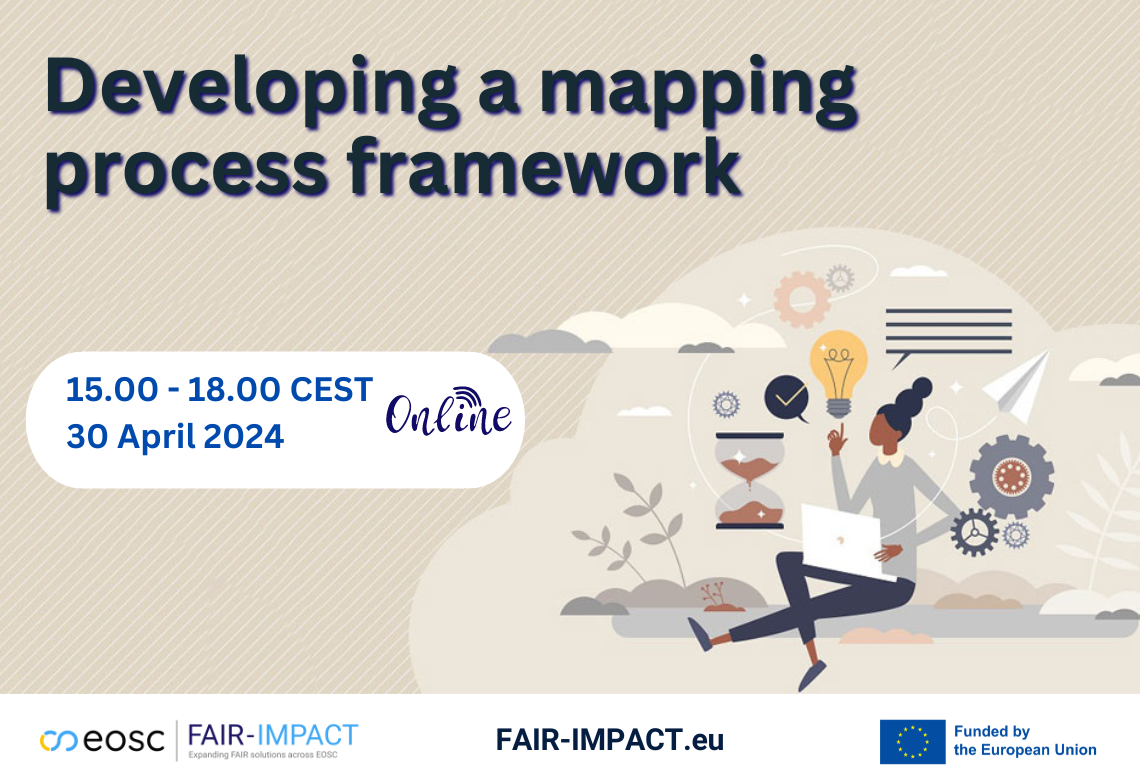When: 30th April 2024 - 15:00/18:00 CEST
Where: online
FAIR-IMPACT runs workshops documenting how the community maps and produces crosswalks between semantic artefacts. This workshop aims to identify standard components in the mapping process, focusing on approaches used from community practices.
Semantic artefacts – ontologies, terminologies, taxonomies, thesauri, vocabularies, metadata schemas and standards – are vital to achieving data interoperability. They are essential to the implementation of the FAIR principles. With the growing number of semantic artefacts and their diversified uses, interconnecting these artefacts is critical but challenging. One approach to interoperability and integration is to identify/generate mappings/crosswalks between different artefacts of the same domain or the same type of information. Also known as ontology matching or alignment, it can be applied to any semantic artefacts.
We need a strategy to manage mappings and ensure they are made available, following the FAIR principles, in relevant mapping repositories where they can be curated, integrated, and rendered for reuse.
FAIR-IMPACT is holding workshops to discuss issues around mappings and crosswalks and how they can become shareable and reusable, i.e., FAIR, elevating them to ‘first class’ citizens in the FAIR data world.
In our 1st workshop, ‘Why Mappings Matter and how to make them FAIR?’, we introduced participants to the motivation behind doing mappings and how they could benefit even more by making mappings FAIR, including methodologies, formats, tools, requirements for FAIR mappings and examples. In this 2nd workshop, ‘Documenting mapping community practices,’ we investigated, with community examples, established mapping methodologies and processes being used, ranging from their creation, curation, governance, maintenance, and update. From the different approaches, methodologies, and processes used across a diverse set of communities, we aim to determine a standard process that could be shared with communities wishing to instigate their mapping process. In this 3rd workshop, we described the common components of a mapping process to formalise a mapping process framework, based on the outputs of our previous work, which we trial here.
Workshop format
This workshop was largely practical in nature, with a short ' scene-setting’ and ‘working methodology’ presentation, along with two short presentations on initial experiences and feedback regarding the framework. The subsequent practical session, divided into two parts, involved applying the framework to one or more mapping exercises.
DOWNLOAD THE SLIDE FROM ZENODO
Watch the recording:
Agenda
| 15.00-15.05 |
Welcome and introduction to the objective of the FAIR-IMPACT project and this workshop |
Yann Le Franc, eScienceDataFactory |
| 15.05-15.15 | Framework presentation | Nick Juty, The University of Manchester |
| 15.15-15.25 | Feedback Presentation 1 “A FAIR-IIMPACT Framework approach to early-stage mapping strategies for Biosamples Metadata” | Sara El-Gebali, Metadata Specialist at DataCite |
| 15.25-15.35 | Feedback Presentation 2: “A practical mapping framework application in the food domain" | Roman Baum & Julian Schneider; NFDI |
| 15.35-16.35 |
Parallel Practical Sessions |
|
| 16.35-16.50 | Quick coffee and Break | |
| 16.50-17.50 | Parallel Practical Session (continued) | |
| 17.50-18.00 | Report Back and Close | Nick Juty, The University of Manchester |
| Next Steps |
Other Workshops in 2024: Workshop 4: First steps to FAIR Cookbook Recipes (Autumn) |
|
